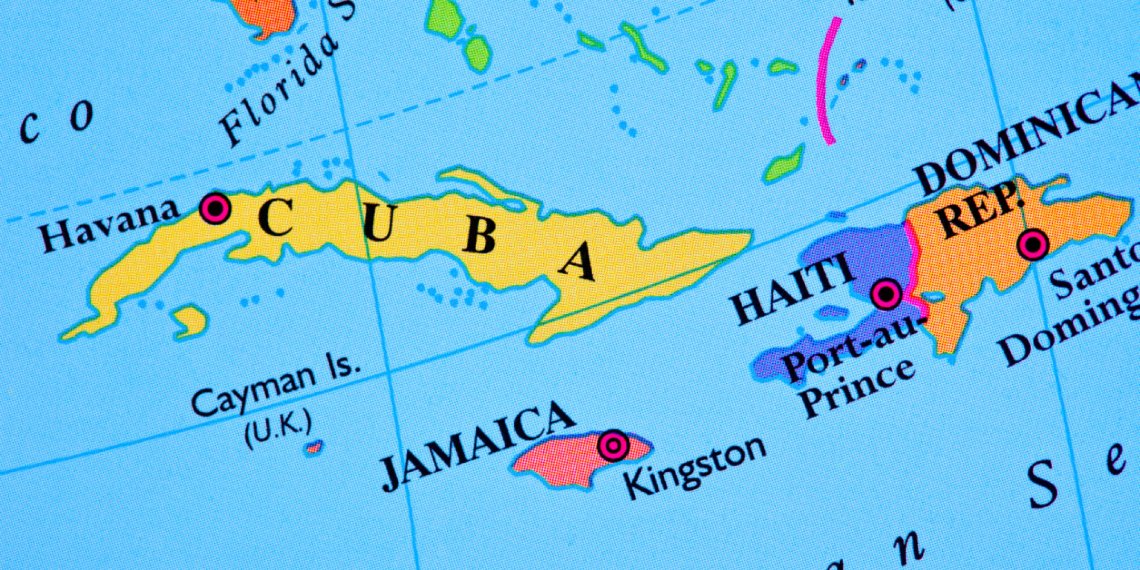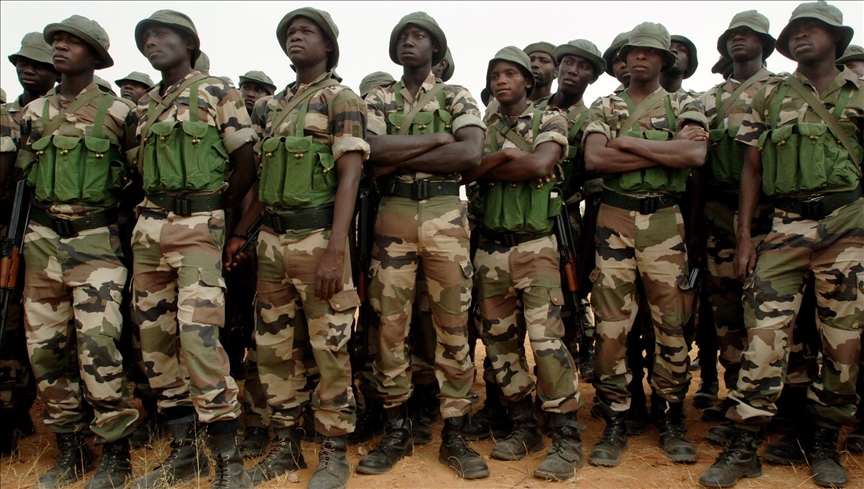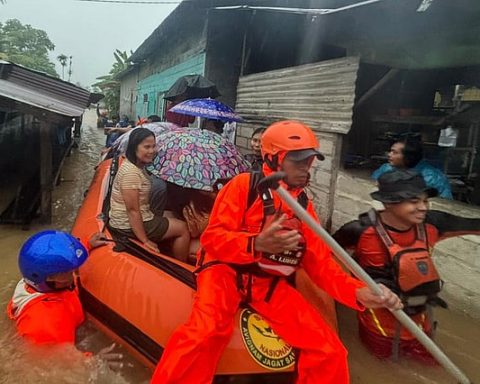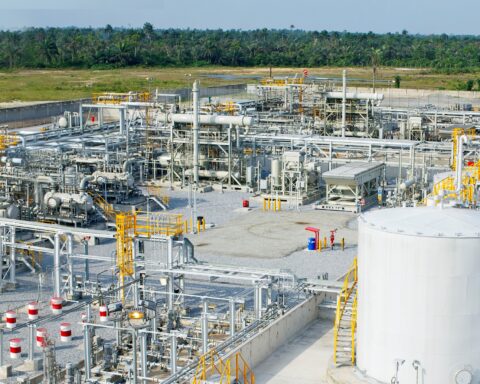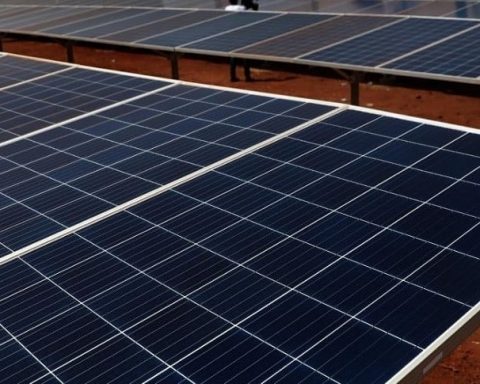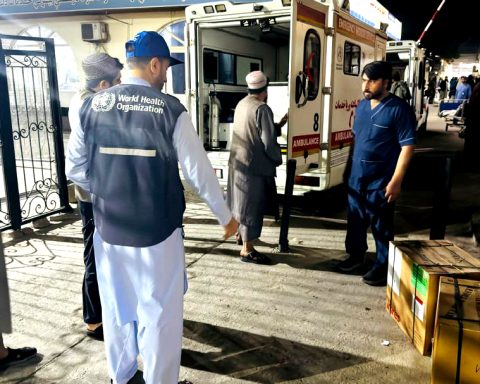Hurricane Melissa, one of the most powerful storms ever recorded in the Caribbean, has left a trail of destruction across Jamaica, Haiti, and Cuba, killing nearly 30 people and displacing hundreds of thousands.
The Category 5 storm, the strongest ever to hit Jamaica has also caused billions of dollars in damages and triggered a regional humanitarian crisis.
Jamaica Declares National Disaster
Jamaican authorities have declared the entire island a disaster zone after Melissa made landfall on Tuesday with sustained winds of up to 185 mph (295 km/h).
Join our WhatsApp ChannelMeteorologists described the storm as “unprecedented” in both strength and persistence, noting that it lingered over Jamaica’s mountainous terrain, intensifying flooding and landslides.
According to Reuters, about 77 percent of the island remains without electricity, and more than 25,000 people are sheltering in emergency centres. The coastal town of Black River suffered some of the worst damage, with reports that nearly 90 percent of roofs were destroyed.
Preliminary government assessments place the country’s losses at over US $22 billion. At least nine deaths have been confirmed, though officials fear the number could rise as rescuers reach remote areas, Prime Business Africa reports.
“The level of devastation we have seen in parts of St Elizabeth and Westmoreland is beyond anything in our recent history,” Prime Minister Andrew Holness said during an emergency address.
READ ALSO : Death Toll Rises As Hurricane Helene Batters US
Just In: 7.4 Magnitude Earthquake Strikes Taiwan, Claims At least 4 Lives, Dozens Injured
Haiti Reels from Flooding and Landslides
In neighbouring Haiti, Melissa did not make direct landfall but unleashed torrential rains that caused rivers to overflow and communities to collapse. The southern coastal town of Petit-Goâve was particularly hard hit, with at least 25 people killed and 18 reported missing, according to The Associated Press.
More than 12,000 people are currently living in temporary shelters, while thousands more are stranded due to washed-out roads. Relief agencies warn that flooding could exacerbate Haiti’s ongoing humanitarian crisis, increasing the risks of waterborne diseases and food shortages.
“The situation is dire,” a UN relief official told reporters. “Haiti was already struggling, and Hurricane Melissa has made it worse.”
Cuba Evacuates 735,000 Residents
Cuba began large-scale evacuations before the storm’s arrival, moving over 735,000 residents from coastal and mountainous areas. By the time Melissa struck the eastern provinces of Granma and Santiago de Cuba, it had weakened slightly to a Category 3 hurricane but still caused significant damage.
Thousands of homes were flattened, roads and bridges destroyed, and more than 240 communities cut off by floods and debris. Prime Business Africa reports that while no deaths have yet been officially confirmed, Cuban officials say food, power, and medical shortages are worsening as they struggle to access remote areas.
Regional and Global Aid Mobilisation
Emergency response operations are now underway across all three nations. In Jamaica, airports have reopened for relief flights bringing in food, water, and medical supplies.
The United States has deployed urban search and rescue teams to the Caribbean, while the Caribbean Disaster Emergency Management Agency (CDEMA) has activated its regional support plan. The United Nations and several international NGOs have also pledged assistance for reconstruction and long-term recovery.
“We are seeing one of the most severe climate-related disasters in recent Caribbean history,” said a meteorologist quoted by Politico. “The speed at which Melissa intensified shows how climate change is amplifying tropical systems in this region.”
A Record-Breaking and Costly Storm
Melissa has since weakened to a Category 1 hurricane as it moves toward the Bahamas and possibly Bermuda, but forecasters warn that heavy rains and storm surges remain a threat. Early economic assessments suggest the total regional losses could exceed US $30 billion.
For many Caribbean nations, the storm’s devastation goes beyond immediate loss, it underscores how the climate crisis is reshaping the region’s future.
If events like Melissa become the new normal, the Caribbean faces not just recovery from one hurricane, but the urgent question of survival in an era of intensifying natural disasters.
“Hurricane Melissa is not just a natural disaster,” said one regional climate expert. “It is a warning, that unless stronger resilience, planning, and climate adaptation efforts are prioritised, future storms could erase decades of development across the Caribbean.”
Amanze Chinonye is a Staff Correspondent at Prime Business Africa, a rising star in the literary world, weaving captivating stories that transport readers to the vibrant landscapes of Nigeria and the rest of Africa. With a unique voice that blends with the newspaper's tradition and style, Chinonye's writing is a masterful exploration of the human condition, delving into themes of identity, culture, and social justice. Through her words, Chinonye paints vivid portraits of everyday African life, from the bustling markets of Nigeria's Lagos to the quiet villages of South Africa's countryside . With a keen eye for detail and a deep understanding of the complexities of Nigerian society, Chinonye's writing is both a testament to the country's rich cultural heritage and a powerful call to action for a brighter future. As a writer, Chinonye is a true storyteller, using her dexterity to educate, inspire, and uplift readers around the world.


